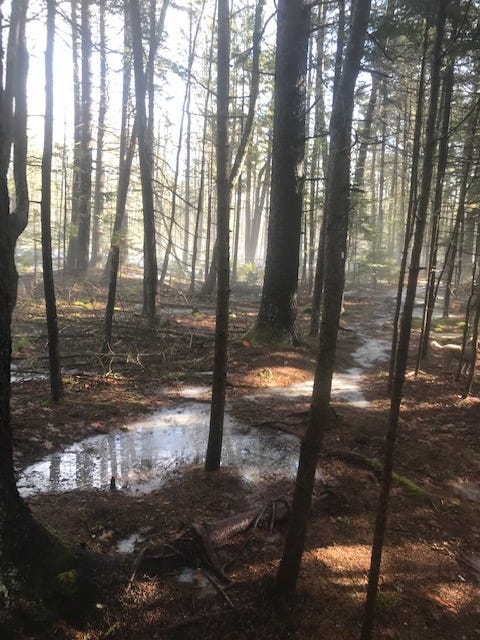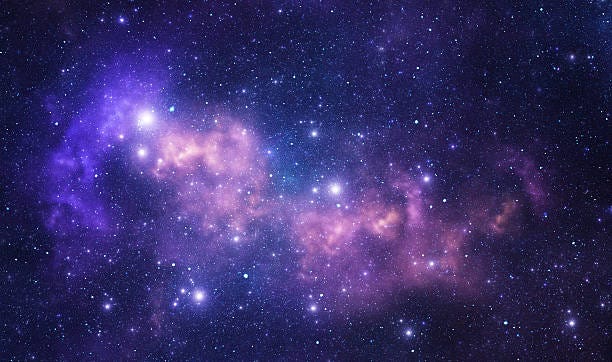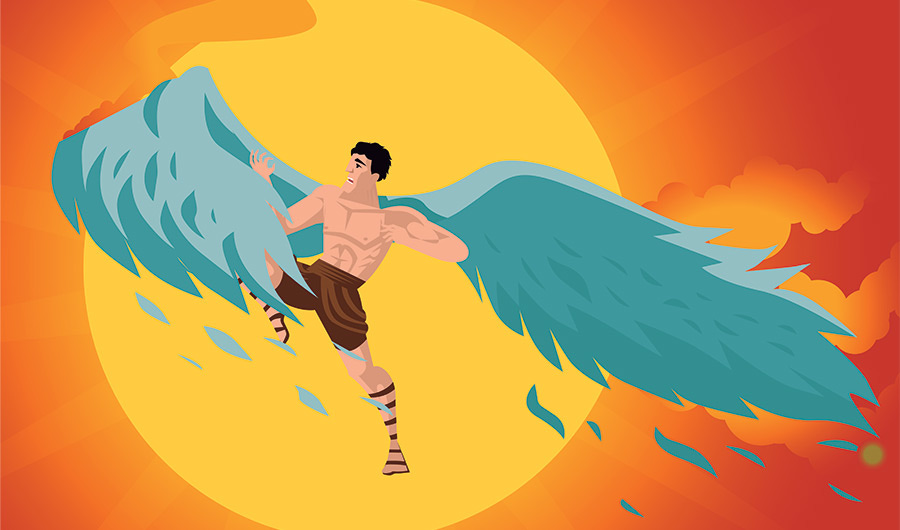Grandmother Woodchuck Meets Icarus
Will we drown?
Should I, after tea and cakes and ices,
Have the strength to force the moment to its crisis?
The Love Song of J. Alfred Prufrock, T.S. EliotWhen I left you last week, reader,, I was happily settled in the stories of Gluscabe’s universe, a state of mind that lasted just long enough for me to feel the crumpled dryness that lives in its absence.
Through stories, Grandmother Woodchuck and I came to know each other. As that relationship unfolded, I found myself subtlety transformed by her ancient lessons about living in respectful conversation with the life forms that surround me here in the forest. Me. I. Such small words on the page but such big words in my mind. Through story, my heavy human-centrality gave way for long moments to a different experience —one of living in deep time among the millions of other life forms that creep and crawl; blossom, breathe, divide and fly.
In this Solstice arc of time when earth is tipped away from the sun, here in the forest darkness envelops us by late afternoon. There are no cars. There is no ambient light in the sky. In the far-off distance through the hemlock and the white pine and the spruce there is one small light that shines all night. It is our neighbors’ light, left on for their chickens. There are no sounds but the sound of the wind or one branch rubbing against another. Even the birds are quiet.
Such a relief, living this far away from the everyday rush of capitalism and capitalism’s right-hand man—advertising: that shape shifter who so nimbly invades my mind with cravings to be more beautiful, more fashionable, more dazzled by yet one more modern device: a newer iPhone, an air fryer. (Full confession: we were dazzled by the air fryer, we succumbed, we wish we hadn’t.)
Here in this darkened place, accompanied by Gluscabe’s stories and other books on Indigenous worldviews and their relevance for solving today’s planetary crises, it was easy to imagine the real possibility of living in systems not defined by growth and capitalism. It was heartening to read the words of the Indigenous comedian, Charlie Hill, taken from the book, “Restoring the Kinship Worldview”:
White folks, you wouldn’t even be here if it weren’t for Indian people. You came to this country, we taught you about democracy, we taught you how to fight the British so you could be free. So come to us now, we can fix this country. All the problems it has, we can fix it because we have the owner’s manual.
In this place of reflection and reading, time altered. I experienced the past as more present, not so much as a linear line behind me and extending out before me, but as part of a circle of experience, present and viable. And it was this circle which gave me hope we could save ourselves from an apocalyptic future.
But all this was interrupted by a story so wild, so otherworldly and future oriented and human-centric that all my grounding in moss and woodchucks and kinship fell away and I felt swept back into the old universe of mankind triumphing over nature, defying the odds, breaking all limits and boundaries. Scientists, the headlines flashed in neon, had learned how to make a sun! Had learned how to manipulate the physics of stars, to create fuel hotter than the hottest sun!
Here's a piece from the Washington Post:
As you might already have heard, you are literally made of stardust. Most of the atoms in your body were forged in the core of some ancient sun, as lighter elements fused into heavier ones; you are the vicarious survivor of star fire and supernovas. Now your species is making stars — tiny ones to be sure, and very ephemeral, but nonetheless we are inching toward mastering the very process that made our world.
Mastering! Mastery! Yes, master! Master of the universe! Master of our fate! Look! Icarus has flown into the sun, yet his wings are golden, glowing, growing!!
We are indeed made of stardust. It is one thing to contemplate those ancient atoms inside me, the circle of time, of space and vastness living inside my body. This idea lends itself to all the principles of interconnection and harmony and time that allowed me to shrug off the superior and disconnected human-centric view of myself and the word.
But how does the idea of being master of the very “processes that make our world” support a mindset of humility and alignment with all the other forces of life? If we are master, do we need to align or do we get to continue to plow our way forward with little thought to the limits of planetary life? Does this discovery keep us on an unsustainable exponential growth curve ? Will my neighbors have less interest in joining us at FreeportCAN to address ways in which our mindsets around food and lawn care and consumption can change to be more in alignment with the needs of the planet?
Fusion! Carbon capture! Technology will save us! Bring on the air fryers and the iPhones and the $30 fast fashion dress from Target sewn in Africa by twelve year old girls. Phooey on degrowth theories.
While all the articles about carbon-free energy from the sun were careful to say that being able to use fusion to power our daily lives is a long way off — and just possibly impossible to achieve —I worry that news of this breakthrough will offer an easy offramp from the crucial reassessment of our relationship to nature we need to make now. Even if someday we can create our own suns and produce carbon free energy, we will not be saved without dramatic changes to the ways we interact with the planet’s ecosystems: with the water and the soil and the minerals and our capacity to grow food and house and support the spectacular interdependent web of life. A new study (using supercomputers) predicts that without massive protections and changes, by 2100, one in ten species will be extinct. Breathe that in. One in ten.
As we speak 20,000 scientists and environmentalists are assembled in Montreal for COP 15. Jason Anthony reports on it in this essay. In it he says the task of COP 15 is:
..to end and then reverse much of the non-climate-related destruction of life in the Anthropocene. If you try to conjure up all the reasons for the extinction crisis, all the drivers of habitat loss, all the harms from industrial agriculture, etc., and then think about how to structure solutions at every level from transnational to local, and then think about how to finance all of it while creating measurable benchmarks to keep the world’s nations and corporations on task and honest about their progress, you get a sense of how insanely difficult the job is.
When Edwin Mitchell, the Apollo 14 astronaut and founder of the Institute of Noetic Sciences, IONS, gazed at Earth floating in the vastness of space he realized:
…that the story of ourselves as told by science—our cosmology, our religion— was incomplete and likely flawed. I recognized that the Newtonian idea of separate, independent, discreet things in the universe wasn’t a fully accurate description. What was needed was a new story of who we are and what we are capable of becoming.
The question is, now that we have seen how close to the sun Icarus can fly, will we have the courage to retell the story of who we are and what we are capable of becoming? Have we, as T. S. Eliot asks in these excerpts from his poem “The Love Song of J.Alfred Prufrock,” the “strength to force the moment to its crisis?” “Have we lingered too long? Will we drown?”
And the afternoon, the evening, sleeps so peacefully!
Should I, after tea and cakes and ices,
Have the strength to force the moment to its crisis?
But though I have wept and fasted, wept and prayed,
Though I have seen my head grown slightly bald and brought in upon a platter,
I am no prophet—and here's no great matter;
I have seen the moment of my greatness flicker,
And I have seen the eternal Footman hold my coat, and snicker,
And in short, I was afraid.
And would it have been worth it, after all,
After the cups, the marmalade, the tea,
Among the porcelain, among some talk of you and me,
Would it have been worth while,
To have bitten off the matter with a smile,
To have squeezed the universe into a ball
To roll it toward some overwhelming question,
To say: "I am Lazarus, come from the dead,
Come back to tell you all, I shall tell you all"—
If one, settling a pillow by her head,
Should say: "That is not what I meant at all.
That is not it, at all."
And would it have been worth it, after all,
Would it have been worth while,
After the sunsets and the dooryards and the sprinkled streets,
After the novels, after the teacups, after the skirts that trail along the floor—
And this, and so much more?—
It is impossible to say just what I mean!
But as if a magic lantern threw the nerves in patterns on a screen:
Would it have been worth while
If one, settling a pillow or throwing off a shawl,
And turning toward the window, should say:
"That is not it at all,
That is not what I meant, at all."
.....
I grow old ... I grow old ...
I shall wear the bottoms of my trousers rolled.
Shall I part my hair behind? Do I dare to eat a peach?
I shall wear white flannel trousers, and walk upon the beach.
I have heard the mermaids singing, each to each.
I do not think that they will sing to me.
I have seen them riding seaward on the waves
Combing the white hair of the waves blown back
When the wind blows the water white and black.
We have lingered in the chambers of the sea
By sea-girls wreathed with seaweed red and brown
Till human voices wake us, and we drown.






I keep learning that I don’t know what I think I know. Thanks Kathleen for your wisdom and helping us all learn the lessons of nature.
Thank you, Kathleen. Your words help capture these challenging times…